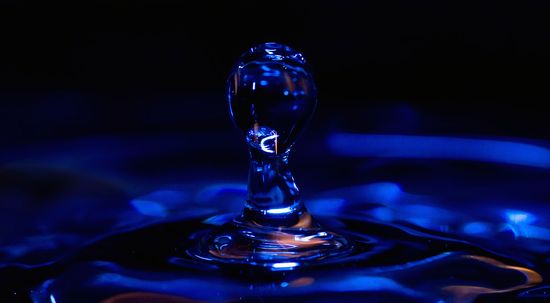The Crucial Water Scarcity Work that Drove a Record University Gift
/
It’s considered the biggest single charitable gift in the history of the Israel. The $400 million donation is all about water scarcity, a huge issue for the state, and one that impacts global security. As we've been reporting, water is emerging as one of the hottest new issues in philanthropy. This massive gift underscores that trend.
Related:"Extremes Are Becoming the Norm." Why Water is the Next Big Issue For Philanthropy
The story of Howard and Lottie Marcus is a moving one all on its own. The San Diego couple lived a frugal and quiet life together following the trauma of fleeing Nazi Germany and losing nearly all of their family members during the Holocaust. So when they passed away in recent years—Howard at 104 and Lottie at 99—you wouldn’t have known they were sitting on a huge nest egg that started with an early investment in what would become Berkshire Hathaway.
Lifelong supporters of Jewish causes and Israel, Ben-Gurion University of the Negev was a natural beneficiary for the couple’s tremendous estate. But the $400 million donation has an interesting twist, as it’s earmarked in large part for the university’s water research.
Water resources are clearly important in Israel and the Middle East, but the work at BGU and the country overall is pioneering solutions to what is ultimately a massive global concern—growing scarcity that threatens health, the environment, and peace. The Marcuses were drawn to the university’s work in desalination and desert agriculture, and came to believe that solving water scarcity issues would be key to bringing peace to the region.
Israel indeed faces the water resource problems of most countries in the Middle East, one of the world’s driest regions, with 75 percent of the country considered dry land, compared to 40 percent across the global land mass. Water has been a constant concern for the country, and following a bad drought in the late 1990s, Israel prioritized desalination and conservation efforts.
The country now gets about 30 percent of its potable water supply from five huge reverse osmosis plants, securing its own supply and even exporting some water to neighboring Jordan. Desalination technology has come a long way since first being used in the region in the 1970s, and Israel’s water program has been called the most advanced in the world.
It’s not just about desalination, though, which is a highly expensive and energy-intensive way to supply water. Israel has also been at the forefront of developing drip irrigation technology, wastewater treatment, and other conservation methods. The country recycles 85 percent of its wastewater, for example, with the runner-up Spain recycling only 20 percent.
As far as the need for the Marcuses’ huge donation, desalination alone still faces major challenges—aside from significant money and energy they suck up, plants face persistent problems like buildup of biological matter and minerals.
And even though Israel has made strides, water scarcity in the region and beyond looms massive, and the kinds of solutions the country has pioneered need to be advanced and scaled to other areas. Water rights are a core piece of the conflict between Israel and Palestine, and other surrounding countries have grave water quality and scarcity problems. We’re only going to see more global struggles as world population grows and effects of climate change worsen.
In 2015, the World Resources Institute found that water supplies in the Middle East will deteriorate over the next 25 years, threatening economies and national security, and cited water shortages as a contributor to the 2011 Syrian civil war. As water becomes scarcer, destabilization and conflict is likely to grow.
Israel’s advances hold a lot of potential to assist other parts of the world, and Ben-Gurion University has been extending some of its work to other countries, including a rural water development program that has sent faculty to Ethiopia, Uganda, and other African nations.
While Lottie and Howard Marcus were largely motivated by peace and security in the Middle East, the implications of the research their estate is now funding could stretch much farther.
Related:








